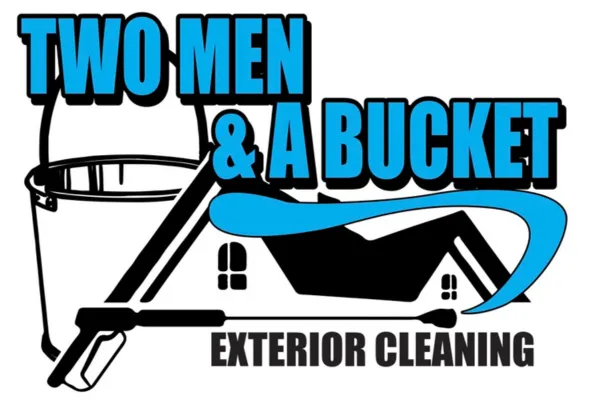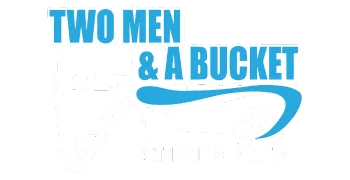Have Questions?
Checkout our blog you'll probably find the answer...

Surface Cleaners for Power Washers

Two Men and A Bucket's Website
PHONE: 314-761-9049
EMAIL: twomenexteriors@gmail.com
More On Pressure Washing Here!
Surface Cleaners for Power Washers
Introduction
Surface cleaners are essential tools for anyone serious about power washing. They offer efficiency, consistency, and ease of use, making them indispensable for both residential and commercial cleaning applications. In this blog post, we'll explore what you need to consider when selecting a surface cleaner for your power washer. We'll cover the key specifications to look for, compare top pressure washers and surface cleaners, and provide recommendations for the best cleaning solutions. Whether you're a homeowner or a business owner, this guide will help you make an informed decision.
Why Use a Surface Cleaner?
Surface cleaners are designed to make power washing more effective and efficient. Here are some key benefits of using a surface cleaner:
Efficiency: Surface cleaners cover a larger area than a traditional spray wand, reducing cleaning time significantly.
Consistency: They provide a uniform cleaning pattern, ensuring that no spots are missed and the surface is evenly cleaned.
Reduced Operator Fatigue: Using a surface cleaner requires less physical effort compared to manually maneuvering a spray wand.
Common applications for surface cleaners include driveways, sidewalks, patios, decks, and other flat surfaces. They are particularly useful for large areas where a consistent clean is essential.
Key Specifications to Consider
When selecting a surface cleaner, there are several key specifications you need to consider to ensure it meets your needs:
Pressure (PSI)
Pressure, measured in pounds per square inch (PSI), determines the force with which water is sprayed. Here’s why it matters:
Importance of PSI: Higher PSI means more powerful cleaning, which is essential for removing tough stains and grime.
Recommended PSI: For general surface cleaning, a PSI between 3000 and 4000 is ideal. Higher PSI is suitable for tougher surfaces like concrete, while lower PSI is better for delicate surfaces like wood.
Flow Rate (GPM)
Flow rate, measured in gallons per minute (GPM), affects the volume of water used in cleaning:
Role of GPM: Higher GPM allows for faster cleaning as more water flows through the cleaner.
Recommended GPM: A flow rate of at least 4 GPM is recommended for effective surface cleaning. Higher GPM can enhance cleaning speed and efficiency.
Radius
The cleaning radius refers to the width of the area that the surface cleaner can clean in one pass:
Effect on Job Time: A larger radius can clean more surface area in less time, making it ideal for large areas.
Recommended Radius: For residential use, a radius of 15 to 20 inches is typically sufficient. For commercial use, consider a radius of 20 inches or more.
Spin Speed
Spin speed, measured in rotations per minute (RPM), impacts the effectiveness of the cleaning:
Importance of RPM: Higher spin speed results in more agitation, which helps to lift and remove dirt more effectively.
Recommended RPM: Look for surface cleaners with a spin speed of at least 1500 RPM for optimal performance.
Comparison of Top Pressure Washers
Choosing the right pressure washer is crucial for maximizing the performance of your surface cleaner. Here, we compare top models from leading brands:
Dewalt Pressure Washers
Dewalt 4400 PSI Gas Pressure Washer
Pressure: 4400 PSI
Flow Rate: 4.0 GPM
Engine: 420cc
Features: Commercial-grade, durable frame, ergonomic spray gun
Predator Pressure Washers
Predator 4400 PSI 4.2 GPM Pressure Washer
Pressure: 4400 PSI
Flow Rate: 4.2 GPM
Engine: 420cc
Features: Heavy-duty steel frame, pneumatic tires, professional-grade
Honda GX Pressure Washers
Honda GX390 4200 PSI 4.0 GPM Pressure Washer
Pressure: 4200 PSI
Flow Rate: 4.0 GPM
Engine: Honda GX390
Features: Commercial engine, triplex pump, adjustable pressure regulator
Other Notable Brands
Simpson Cleaning ALH4240
Pressure: 4200 PSI
Flow Rate: 4.0 GPM
Engine: Honda GX390
Features: Aircraft-grade aluminum frame, premium pneumatic tires, kink and abrasion-resistant hose
Comparison of Top Surface Cleaners
Next, we look at the best surface cleaners available on the market, comparing their specifications and features:
Whisper Wash Classic
Cleaning Radius: 19 inches
Max Pressure: 4000 PSI
Spin Speed: 2000 RPM
Features: Durable construction, lightweight, high-pressure swivel
BE Pressure Whirl-A-Way
Cleaning Radius: 20 inches
Max Pressure: 4000 PSI
Spin Speed: 1800 RPM
Features: Stainless steel housing, heavy-duty trigger gun, easy maneuverability
Mosmatic Surface Cleaners
Cleaning Radius: 21 inches
Max Pressure: 4000 PSI
Spin Speed: 2000 RPM
Features: High-quality stainless steel, maintenance-free swivel, ergonomic design
General Pump Hammerhead
Cleaning Radius: 18 inches
Max Pressure: 4000 PSI
Spin Speed: 1500 RPM
Features: Rugged construction, easy to use, high-pressure nozzle system
Choosing the Right Surface Cleaner and Pressure Washer Combination
Selecting the right combination of surface cleaner and pressure washer is essential for achieving optimal cleaning results:
Matching Surface Cleaners with Pressure Washers: Ensure that the surface cleaner and pressure washer are compatible in terms of PSI and GPM. Most surface cleaners are designed to handle specific ranges of PSI and GPM, so check the manufacturer’s recommendations.
Consideration of Surface Types and Cleaning Needs: Different surfaces require different cleaning approaches. For example, concrete surfaces may require higher PSI, while wooden decks need lower PSI to avoid damage. Consider the type of surfaces you will be cleaning most frequently.
Cleaning Solutions for Surface Cleaning
Using the right cleaning solutions can enhance the effectiveness of your surface cleaning:
Pre-Cleaning Solutions
Recommendations: Use pre-cleaning solutions to loosen dirt and grime before power washing. Products from South West Soft Wash, such as their "Soft Wash Pretreatment," are highly recommended for their effectiveness and eco-friendliness.
During Cleaning Solutions
Detergents and Additives: Enhance cleaning by using detergents and additives designed for power washers. Ensure they are compatible with your equipment and safe for the surfaces you are cleaning. Look for biodegradable options to minimize environmental impact.
Post-Cleaning Solutions
Protective Treatments and Sealants: After cleaning, you should post treat with a water / sodium hypocrite mix to prevent tiger stripping. Also apply protective treatments to maintain the cleanliness and integrity of the surfaces. Sealants can protect surfaces from future stains and damage, prolonging the life of your cleaning efforts.
Additional Tips for Effective Surface Cleaning
Here are some additional tips to help you get the most out of your surface cleaning efforts:
Maintenance of Surface Cleaners
Regular Cleaning and Inspection: Regularly clean and inspect your surface cleaner to ensure it remains in good working condition. Check for wear and tear, and replace parts as needed.
Common Issues and Troubleshooting Tips: Familiarize yourself with common issues, such as clogged nozzles or leaks, and know how to troubleshoot them.
Safety Tips
Proper Use of PPE: Always wear appropriate personal protective equipment (PPE), such as gloves, goggles, and non-slip footwear, when using power washers and surface cleaners.
Safe Handling and Storage of Cleaning Solutions: Handle cleaning solutions with care, following the manufacturer’s instructions. Store them in a cool, dry place, away from children and pets.
Environmental Considerations
Eco-Friendly Cleaning Solutions: Choose eco-friendly cleaning solutions to minimize your environmental impact. Biodegradable detergents are a great option.
Best Practices for Minimizing Environmental Impact: Avoid overuse of water and chemicals. Collect and properly dispose of wastewater, especially when using harsh chemicals.
Conclusion
Surface cleaners are valuable tools for anyone looking to achieve efficient, consistent, and high-quality power washing results. By understanding the key specifications to consider, comparing top models, and using the right cleaning solutions, you can make an informed decision that meets your specific needs. For professional advice and services, contact Pressure Washing St. Louis. We're here to help you achieve the best possible results.
Frequently Asked Questions
Answers To Common Questions
How often should I have my exterior cleaned?
The frequency of exterior cleaning depends on factors such as the climate, level of pollution, and type of surfaces. Typically, it's recommended to have your exterior cleaned annually or bi-annually to maintain its appearance and prevent damage.
What are the benefits of exterior cleaning for my property?
Exterior cleaning not only improves the appearance of your property but also helps prevent deterioration caused by dirt, mold, mildew, and pollutants. It can extend the lifespan of your exterior surfaces and increase the overall value of your property.
Is exterior cleaning safe for my plants and landscaping?
Our exterior cleaning services use eco-friendly and biodegradable cleaning solutions that are safe for plants and landscaping. Additionally, precautions are taken to protect delicate vegetation during the cleaning process.
What are the different methods used for exterior cleaning?
Common methods for exterior cleaning include pressure washing, soft washing, hand washing, and chemical washing. The method used depends on the type of surface being cleaned and the level of dirt or stains present.
How much does exterior cleaning typically cost?
The cost of exterior cleaning varies depending on factors such as the size of the property, the type of surfaces being cleaned, and the level of cleaning required. It's best to request a quote from our website to learn more!
Why should we have our property cleaned?
Just like having your teeth cleaned, it helps prevent bigger, more expensive problems in the future, while making everything look nicer today.
